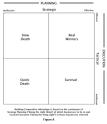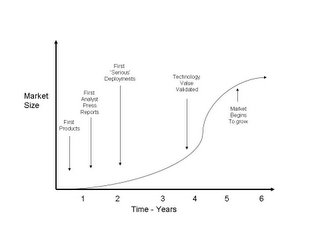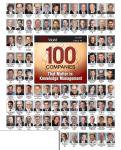
A major part of my work over the past years has been in providing strategic advice to larger enterprises and government depts. Guiding people through the technology and business maze, and helping them to make decisions that will help them long term, and cross enterprise.
However, one persons strategic viewpoint is anothers tactical viewpoint. And providing guidance at the tactical or strategic level without reference or context from the other is always flawed.
But getting that context is difficult as one typically works at one level or the other. I was struck with this issue yesterday whilst at a client site.
The client is one that is quite new to me, but I already like them and feel their pain. They have worked dilegently for years, rode the dot.com boom and bust, invested heavily in technology and somehow make things work. Things in this case range from intranets, complex external websites, publishing divisions to internal document management. In many regards a typical large company.
The client wants to do a really good job of consolidating, streamlining and improving the way they work. They want to stay ahead of the curve, but not take silly risks, they want to maximise the value of the investments they have already made, they want to ensure that whatever they do now, will still be of value in 5 years time - they are (for me at least) almost a perfect client.
But yesterday I made a big error, and though I worked hard to resolve the situation - an error it was.
The bottom line is that I started my presenation at far too broad a level - its not that what we were talking about was wrong, just that it was 'too' strategic. What I talked about was of value, and was a conversation they really wanted to have - but, they had some painpointe that needed to fixed in a particular order, regardless of strategic intent.
What annoyed me so much, and I was still brooding on it on the return journey - was that I should have known this in advance and that the error was all mine.
So in practical terms what the heck am I talking about? Simply put it is the fact that no matter how strategic the intent of ones work is, it has to be grounded in today's activities.
No matter if one is planning to build a Content or KM infrastructure across the enteprise, one that will provide a platform for compliant and collaborative working for years to come - there are customers (internal and external) who today have issues that need to be resolved. If those issues are ignored then no matter how grand your enterprise plans are - things will be unlikely to proceed as you hope.
My lesson from yesterday was that as a consultant I need to ensure that I ask, everytime without fail, what is the most pressing issue today that needs to be resolved. By finding that out and ensuring that we are all aware of it, and that this is addressed properly, doors open.
Doors open to a deeper understanding of where the firm is at - what issues they are really dealing with - introduces one to others that may not have been involved in the project, but have pressing needs. Gives one a perspective, that one otherwise would not have.
Of course this is all common sense, but I am fairly sure that I am not the first or only one to have fallen into the trap. The trap is to my mind, dealing with senior people who are embarking on big projects, or product/marketing directors who want to build solutions for the next generation of buyer - without in parrallel initiating a discussion with somebody who is trying to deal with the status quo.
Its not about neccesarily spending time with end users (though that is always a good idea) its about asking and exploring what is the single biggest proplem that the organization is currently facing. When you find that out you find out much much more, and now have a real world, grounded context for the strategic work to follow.
In yesterdays case, the client had prioritized a particular workflow project above others. Though there are a hundered good reasons why this should not be the starting point of such a major undertaking, the fact it is that it is. On further discussion it became clear why and though its still not a great starting point, it provided an insight into this firms particular priorities and perspectives that otherwise I could never have had.
In this regard, understanding this particular tactical level project improvement, provided the context for the much wider strategic level initiative we are planning to undertake. Without this tactical insight I have no doubt our strategic work would be weaker, and have less chance of success.
To truly offer strategy consulting or to position oneself as a futurist - one can only do this credibly if one understands the nitty gritty reality of today. The world is full of good intentions that people fail to execute on. In my particular world, firms are full of unused licence agreements, IT systems that work, but not in the way they were intended to, yet somehow, usually due to human ingenuity and perseverence things do work, it is my firm belief that they could generally work a lot better. Making the effort to find out the most painful point in the firm, regardless of whether it is technically in or out of scope for ones particular project can deliver that anchor point - and save you (me!) from drifting off on an arm waving exercise driven by hot air.

















